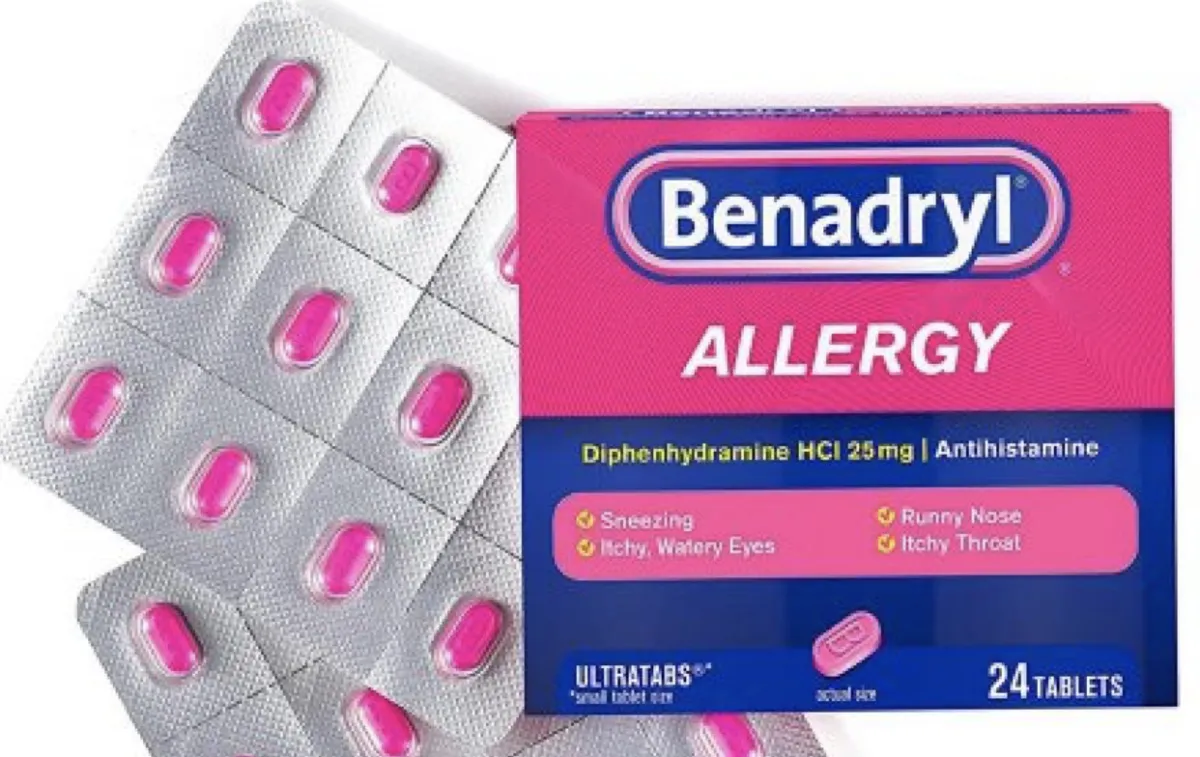
An Old Medicine Cabinet Staple Raises New Concerns
Benadryl (diphenhydramine) has been relieving itchy rashes, runny noses, and insomnia since the 1940s.
It's effective, but it crosses the blood-brain barrier, causing grogginess, which increases the risk of falls, car accidents, and potentially dementia.
That grogginess doesn’t wear off when you wake up. Benadryl can leave you with a “hangover” effect—foggy, unfocused, and dragging--well into the next day.
One study found that a single dose impaired driving more than a 0.1% blood alcohol level. The EU has it on its “do not drive” list. Airline pilots are banned from flying within 2–3 days of taking it.
Many experts believe Benadryl wouldn’t pass clinical trials today if it were a new drug.
Risks You Might Not Expect
Benadryl doesn’t just make you sleepy. It blocks acetylcholine, a chemical important for memory and attention. Long‑term use has been linked to an increased risk of dementia, including Alzheimer’s.
Researchers followed over 3,000 older adults without dementia for 7 years and found that frequent long-term use of acetylcholine-blocking drugs was associated with 54% higher risk of dementia and 63% higher risk of Alzheimer’s disease.
These studies don’t prove that Benadryl causes dementia, and it isn't clear whether there are risks in younger people or for short-term use.
Given the increasing evidence tying older antihistamines to cognitive decline, why take the risk, especially when safer alternatives exist?
Why NyQuil Knocks You Out—But Doesn’t Help You Sleep
Diphenhydramine is in over 300 different products, from sleep aids, like Sominex, to cold remedies, like NyQuil.
It puts you to sleep, but not the deep, restorative kind. It disrupts your rapid eye movement (REM) sleep, leaving you feeling groggy and unrested--more like a hangover.
It can also cause:
Dry mouth and blurry vision
Constipation and urinary retention
Fast heart rate and, rarely, dangerous heart rhythm changes
Confusion, especially in children and older adults (my mom had a reaction to it in the hospital)
Ever heard of the TikTok “Benadryl Challenge?” High doses can cause hallucinations, seizures, and even death.
Newer Antihistamines Are a Better Choice
Second‑generation antihistamines like Zyrtec, Claritin, and Allegra do the same job without the drowsiness. My favorite is Xyzal. They:
Work as well (often better) for allergies
Last longer, so you don’t have to take them as often
Have far fewer side effects
The American Academy of Allergy, Asthma, and Immunologyrecommends them as the first‑line choice for most allergy sufferers.
When Is Benadryl a Good Idea?
Benadryl still has a place in:
Anaphylaxis or acute allergic reactions (it takes effect in 15-30 minutes versus 20-60 minutes for second-generation antihistamines)
Situations where sedation is the goal (like before a procedure)
Occasional short‑term use when nothing else is available
If you use it once in a while, you’re probably fine. The bigger concern is chronic or frequent use.
Check for diphenhydramine on the labels of allergy, sleep, and cold medications.
It's in so many products, it would be easy to overdose!